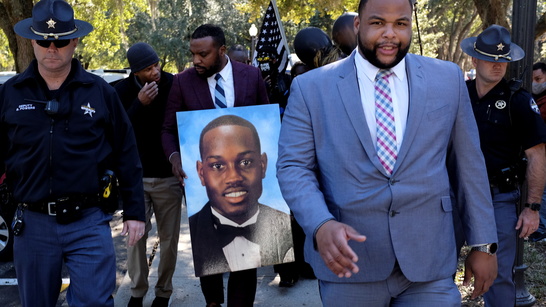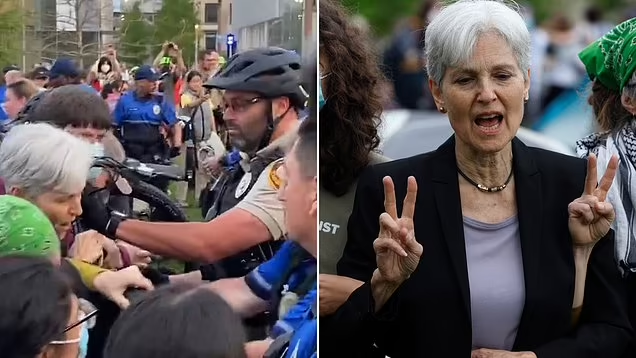
A Georgia jury deliberated for more than six hours on Tuesday but failed to reach a verdict on murder and other charges against three white men who fatally shot Black Ahmaud Arbery.
The three men – Travis McMichael, 35, his father Gregory McMichael, 65, and their neighbor William “Roddie” Bryan, 52 – chased Arbery, 25, in pickup trucks after they spotted him in the coastal suburb of Satilla Shores on Feb. 23, 2020.
Travis McMichael shot Arbery with a shotgun at close range and Bryan filmed the fatal encounter on his cellphone.
The three face up to life in prison if convicted of the more serious charges.
A nearly all-white jury — it includes one Black juror — that will determine their fate, did not reach a verdict on Tuesday and would resume on Wednesday.
Lead prosecutor Linda Dunikoski delivered a final two-hour rebuttal to defense lawyers’ closing arguments.
Before deliberations started, Dunikoski asked jurors to find the defendants guilty of all charges, saying the defense was seeking to blame Arbery for his own death.
“Standard stuff: Malign the victim. It’s the victim’s fault,” Dunikoski told the jury. “I know you’re not going to buy into that. It’s offensive.”
Defense lawyers have said the three men suspected Arbery was a burglar, noting they were trying to conduct a citizen’s arrest, which was legal in the state at the time.
READ ALSO: Palestinian prisoners suspend hunger strikes after winning battles for freedom
However, prosecutors have argued that the men had no “immediate knowledge” of Arbery having committed a crime, a requirement of a citizen’s arrest.
Dunikoski said they decided to “attack” because Arbery “was a Black man running down the street,” and not because he was a threat.
On Tuesday, Superior Court Judge Timothy Walmsley told jurors that someone can make a citizen’s arrest of a person only if a crime has occurred “in his presence or within his immediate knowledge.”
A “private citizen’s warrantless arrest must occur immediately after the perpetration of the offense, or in the case of felonies during the escape,” Walmsley said.
“If the observer fails to make the arrest immediately after the commission of the offense, or during an escape in the case of felonies, his power to do so is extinguished.”
Dunikoski also said Tuesday the three men simply did not have reasonable suspicion of a crime necessary to detain Arbery, and that Arbery had a constitutional right not to answer the questions they shouted from their trucks.
“You can’t hold somebody so the police can show up, and go, ‘Well he must have done something,'” Dunikoski said.











